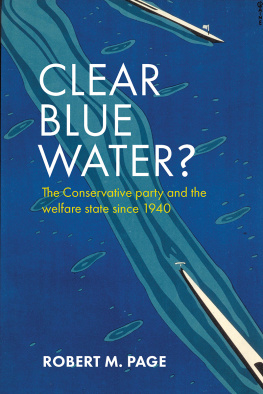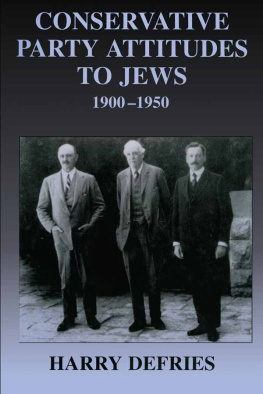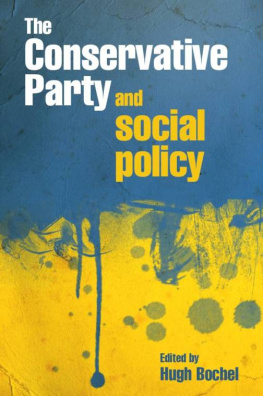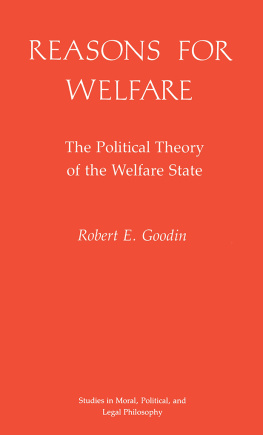
First published in Great Britain in 2015 by
Policy Press University of Bristol 1-9 Old Park Hill Bristol BS2 8BB UK Tel +44 (0)117 954 5940 e-mail
North American office: Policy Press c/o The University of Chicago Press 1427 East 60th Street Chicago, IL 60637, USA t: +1 773 702 7700 f: +1 773-702-9756
Policy Press 2015
British Library Cataloguing in Publication Data
A catalogue record for this book is available from the British Library
Library of Congress Cataloging-in-Publication Data
A catalog record for this book has been requested
ISBN 978-1-8474-2986-5 Hardcover
ISBN 978-1-4473-3454-5 ePub
ISBN 978-1-4473-3455-2 Mobi
The right of Robert M. Page to be identified as author of this work has been asserted by him in accordance with the Copyright, Designs and Patents Act 1988.
All rights reserved: no part of this publication may be reproduced, stored in a retrieval system, or transmitted in any form or by any means, electronic, mechanical, photocopying, recording, or otherwise without the prior permission of Policy Press.
The statements and opinions contained within this publication are solely those of the author and not of the University of Bristol or Policy Press. The University of Bristol and Policy Press disclaim responsibility for any injury to persons or property resulting from any material published in this publication.
Policy Press works to counter discrimination on grounds of gender, race, disability, age and sexuality.
Cover design by Policy Press from an original idea by Robert M. Page
Front cover image kindly supplied by London Transport Museum Ltd
Readers Guide
This book has been optimised for PDA.
Tables may have been presented to accommodate this devices limitations.
Image presentation is limited by this devices limitations.
Dedicated to the University of Kent
on its 50th anniversary
Contents
Robert M. Page is currently Reader in Democratic Socialism and Social Policy at the University of Birmingham. He was formerly a Lecturer in Social Policy at St Davids University College, Lampeter (1980-88), Lecturer in Social Policy and Administration at the University of Nottingham (1988-98), and Senior Lecturer and then Reader in Social Policy at the University of Leicester (1998-99). He has written on a wide range of social policy topics particularly the British welfare state since 1940.
Other books by Robert M. Page include:
Stigma , London: Routledge and Kegan Paul, 1984.
Modern thinkers on welfare , Hemel Hempstead: Harvester-Wheatsheaf/Prentice-Hall, 1995, (Edited with Vic George).
Altruism and the British welfare state , Aldershot: Avebury, 1996.
British social welfare in the 20th Century , London: Macmillan, 1999, (Edited with Richard Silburn)
Understanding social problems , Oxford: Blackwell, 2001, (Edited with Edward Brunsdon and Margaret May).
Global social problems , Cambridge: Polity, 2004, (Edited with Vic George).
Revisiting the welfare state , Maidenhead: McGraw-Hill/Open University Press, 2007.
The University of Kent at Canterbury celebrates its 50th anniversary in 2015. It seems appropriate therefore to acknowledge the part that UKC, as it was formerly known, has played in my own career. I was fortunate to have been both an undergraduate and postgraduate student during what can be described as a golden era from 1973 to 1979. I came into contact with a wide range of sparkling and erudite scholars not just in my chosen undergraduate degree programme in social policy and administration but also in allied subjects such as economics, law, politics, sociology and social anthropology. Vic George then encouraged me to study for a higher degree. My PhD thesis entitled Felt stigma and the unmarried mother: a social policy and administration approach, formed the basis of my first book, Stigma , which was published in 1984. By happy coincidence, a new edition of this book will also be published this year.
I am greatly indebted to Jane Wilton for all her love, support and encouragement during the long gestation period of this book. I am particularly grateful to her for reading and commenting so perceptively on successive drafts of this volume when I am sure she would have much rather spent her spare time playing tennis.
I would also like to record my thanks to all those at Policy Press who have been so supportive at every stage of this project, in particular Alison Shaw, Emily Watt, Laura Greaves, Laura Vickers and Susannah Emery.
A number of authoritative texts have been published charting the development of the British welfare state. Some of these books cover developments as far back as the Elizabethan age,
The idea of a pervasive welfare consensus or settlement is one of the factors that helps to explain the preponderance of cross-party accounts of welfare developments since the Second World War. From this perspective it is argued that, during the period between 1945 and 1979, who will devise solutions for those social problems deemed to require ameliorative action.
One of the other factors that helps explain the paucity of Conservative accounts of the post-war welfare state is the partys lukewarm or even hostile disposition to this type of collective arrangement. For many traditional Conservatives, Labours post-war construction of the welfare state was a further example of the kind of enterprising endeavour that politicians and governments should studiously avoid on the grounds that it will disturb the organic equilibrium that has evolved gradually and peacefully over time.
There are, however, some compelling interrelated reasons as to why the Conservative approach to the welfare state is worthy of study in its own right . First, the Conservative Party has been in power for considerable periods of time since the Second World War. As such, it has actively shaped the development of the welfare state and, as a consequence, has had a significant impact on the life chances and opportunities of millions of British citizens. Even if one were to accept that the Conservatives only govern on the basis of pragmatism or common sense, an exploration of their policy and practice is likely to prove illuminating. The fact, however, that many commentators have identified the Conservatives as an ideological party provides a second reason as to why a study of the partys approach to the welfare state may be of value. Exploring the ideological positioning of the Conservative Party over time enables one to understand more clearly why it has not only resisted specific welfare initiatives emanating from its political opponents but also pursued strategies that are more likely to fulfil some of its long-term ambitions such as the creation of a property-owning democracy. Third, an in-depth study of the partys approach to the welfare state also alerts one to the additional possibility that there might not be one overarching Conservative approach to the welfare state but rather a number of competitive visions. In the same way that observation of the ebb and flow of a river at different times of the day or year will reveal subtle differences in the colouration of the water, so an in-depth study of Conservative thinking and practice can reveal different hues of blue.
This book identifies four distinctive post-war Conservative approaches to the welfare state. While each draws from the family of Conservative values and beliefs outlined in Chapter One, significant differences of emphasis and approach can be identified. One Nation Conservatives (Chapters Two and Three), for example, believe that the state has a positive welfare function to perform. They are also more favourably disposed towards working-age adults who are unfortunate enough to require financial assistance from public funds, believing that this is more likely to result from ill fortune rather than laziness or some other undesirable personal attribute. While the modern technocratic Conservatives discussed in Chapter Four also draw on a broad range of traditional Conservative themes, they regard themselves as decidedly un-ideological, preferring to rely instead on an eclectic mix of Conservative ideas that they believe will enable the nation to advance both economically and socially. Neo-liberal Conservatives (Chapter Five) have expressed concerns about the pale blue approach to the welfare state adopted by both One Nation and modern technocratic Conservatives. They sought to establish a more authentically blue approach to the welfare state that focused on the harm that this institution had caused to British society and the consequent need to introduce a more radical form of change based on individualism, freedom and choice. More recently, the progressive neo-liberal Conservatives (Chapter Six) have distanced themselves from their older neo-liberal sibling by adopting a more emollient tone towards social minorities and by developing a positive, rather than negative, narrative when making the case for welfare reform.












